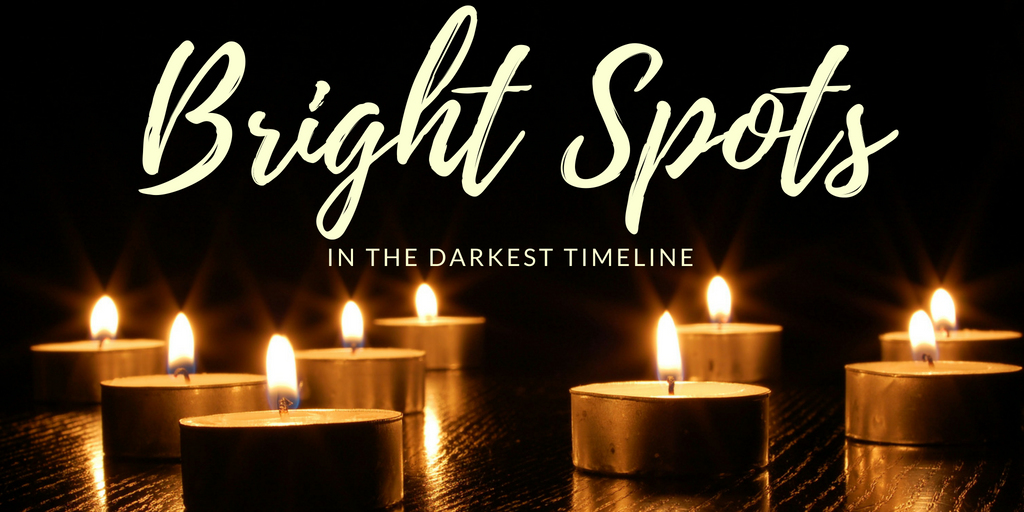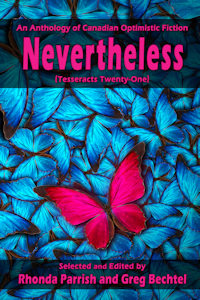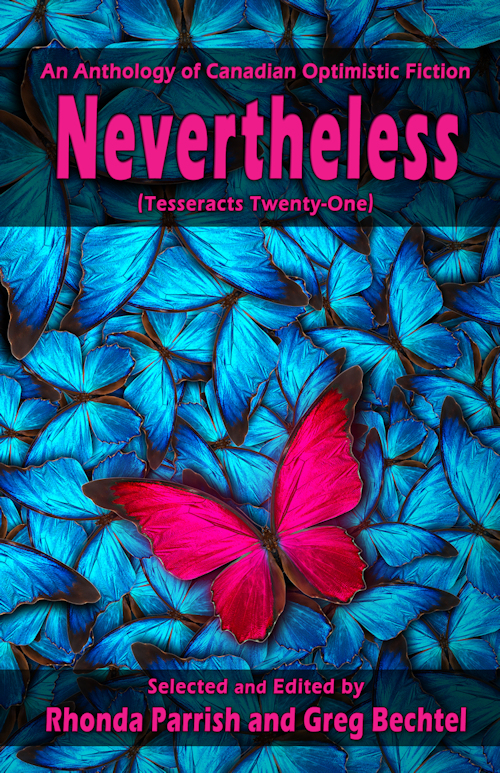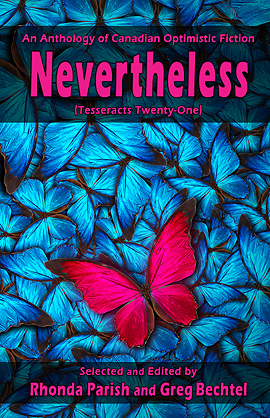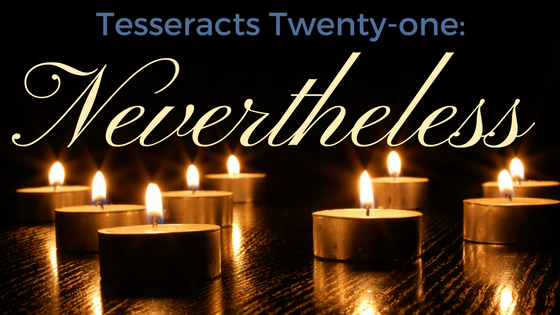When Brian Hades and I were discussing themes for Nevertheless (Tesseracts Twenty-one) one of the possibilities he suggested was optimistic speculative fiction. I pounced on that idea for two reasons. First, because I’d just recently become aware of solarpunk (largely through Sarena Ulibarri) and was excited to work on an anthology that might include some and second because I’d become convinced that we were living in the darkest timeline.
That was in 2016. I had no idea how much darker it could become.
Still, despite a very difficult couple of years, I manage to find reasons for optimism. Lights in the darkness. And I’m not alone in that.
In the coming weeks I will be hosting a series of blog posts I’m calling “Bright Spots in the Darkest Timeline”. Each will be written by a Nevertheless (Tesseracts Twenty-one) contributor and I think they will serve the dual purpose of giving me an excuse to talk about the anthology, and shining a bit of light into people’s lives.
Today we continue with this contribution from Jerri Jerreat how she stays optimistic.
Why I’m Still Optimistic
By Jerri Jerreat
I think a writer needs to be drenched in the real world, not holed up in a garret or mansion, separate from life swirling around. I am terribly curious, nosy, my sister says, about everyone. I enjoy chatting with the person beside me on the bus or plane, the waitress, the logger, the cashier. These small connections give me hope. I’ve learned that ordinary people are resourceful and hopeful. They’re all trying to create good lives, make wise choices. They are capable of learning new ways.
I support a variety of kick-ass charities, including Ecojustice, Greenpeace, environmentaldefense.ca, Friends of Clayoquot Sound, Help Lesotho, Women for Women International, etc. They are each accomplishing amazing things. I sign petitions, walk in marches. Martin Luther King taught us.
As well, I teach a classroom full of students under the age of 13. They have anxieties. My 9 year olds came to school in a panic after Trump was elected and I had to soothe them, explain that that was not our country. We were safe. But are we? We have to fight for our safety, our Human Rights and our right to clean air, water and land. Throughout the year, in class, we read newspaper articles together that inspire us all with hope. There were those kids in Yellowknife who wanted to be a sledge hockey team to play with their friend with cerebral palsy; the clever off-grid tiny houses built by the Secwepemc people to protect their alpine meadows; shaggy haired Boyan Slat, with an invention to use the ocean currents to remove plastic; and the Malawain lad, William Kamkwamba, who built a wind turbine out of scrap metal bits and an old textbook. I read them the book, “And Tango Makes Three”, to which one lad responded, “Well why can’t penguins be gay? People can be!” We heard Malan, a local teen, recently a refugee from Syria, chat to us about her life, and we played with her baby sister. My class ate a gorgeous lunch with Muslim Canadian families.
People are creative! We can unlearn prejudices. We can learn to repair our excesses. We can rein in those negative leaders, and work to halt the world’s warming.
I am optimistic, but I am also a fighter.
Jerri Jerreat’s fiction has appeared in The New Quarterly, The Dalhousie Review, The Antigonish Review, Fireweed, Canadian Storyteller Magazine, and won a Room fiction competition. She has a Masters degree in Creative Writing from the University of British Columbia and has taught a variety of writing courses at St. Lawrence College, in Kingston, Ontario. She now teaches younger students, and each year, mentors a class to create a play together, then directs it. She read A Wrinkle in Time and other fine books aloud to her own kids, Tanner, Adan and Haven, walking them to school, and is proud to say she can still walk and read at the same time. When her family canoe trips somewhere like Algonquin Park, they all stuff massive books secretly into their packs.
